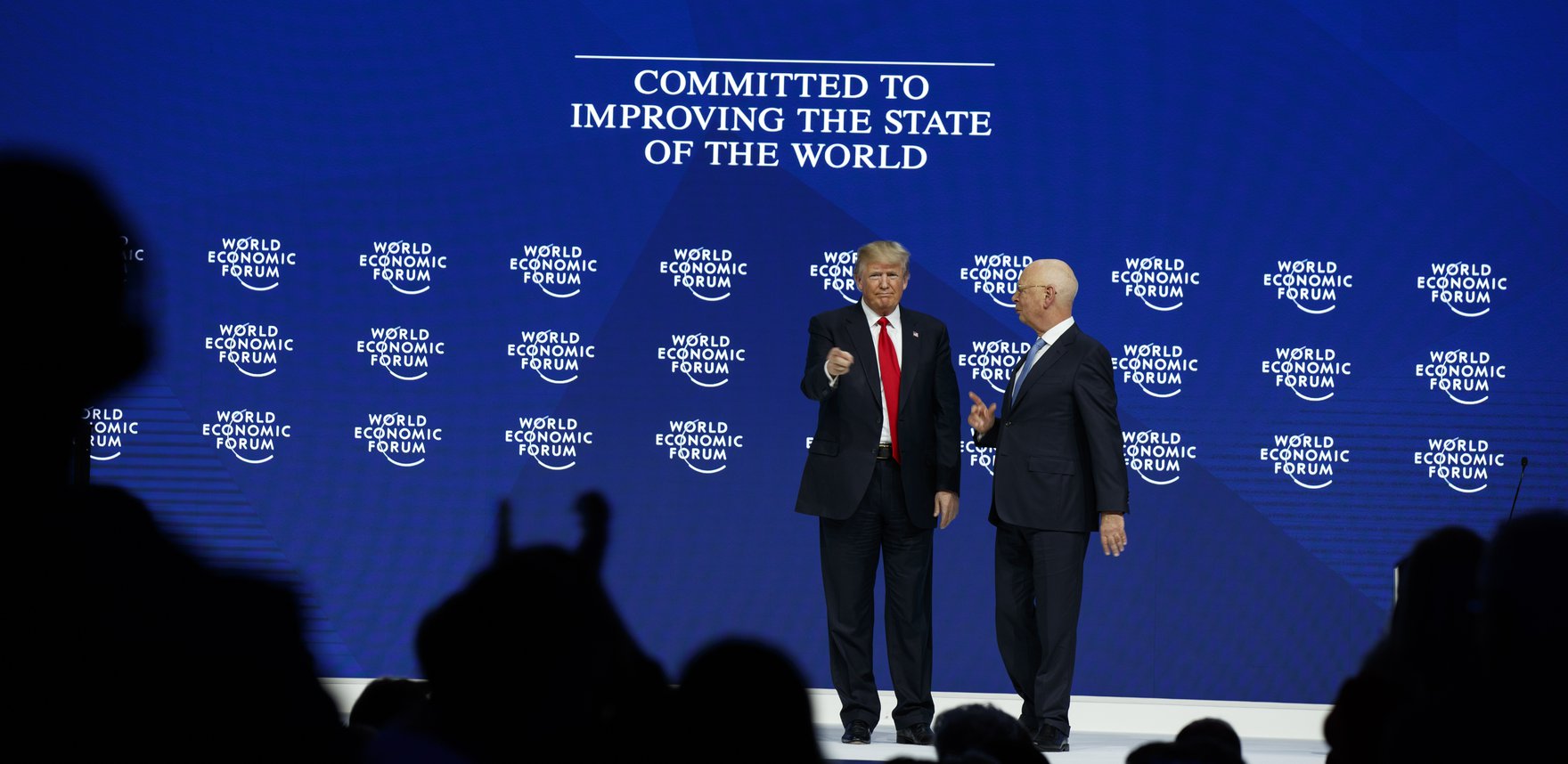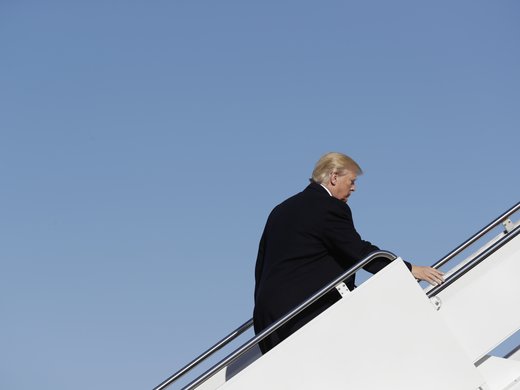United States President Donald Trump received a polite, if not warm, reception from business leaders last week at the meeting of the World Economic Forum in Davos, Switzerland. Political leaders were evidently more circumspect, offering a united defence of open markets against protectionism. The only hint of discord was when the president veered from his prepared remarks to scorn mainstream media’s tenuous attachment to veracity. Apart from this looking-glass moment, Trump’s attendance at a gathering that had long snubbed him, along with his ability to read a prepared speech from a teleprompter, was hailed a triumph.
The president’s charm offensive succeeded partly because of his moderate “America first, not America alone” message. But the titans of finance and industry who gathered last week amid the alpine beauty of Davos were not won over solely by the kinder, gentler version of economic nationalism put on display. Global elites — whose sensibilities of decorum and discretion offend the US president daily — were unlikely to be swayed by words alone. They know that whatever the president says today will be contradicted tomorrow.
The Davos cognoscenti were more likely seduced by the promise of bigger bonuses offered by recent Republican tax cuts, which marks another milestone in this Davos man’s march of folly.
The reference to folly is a nod to historian Barbara Tuchman’s 1984 survey of epic failures in political decision making and their consequences. In The March of Folly: From Troy to Vietnam, Tuchman argued that decisions viewed as disastrous only in retrospect do not belong in her pantheon of folly. She defines folly as the consistent — indeed, determined — pursuit of policy contrary to self-interest. The policy had to have been supported by a group, as opposed to a single individual, and, most importantly, to pursued contrary to advice available at the time.
Only time will tell if Davos’s embrace of tax cuts qualifies, although a strong case is already building.
Consider, for example, the requirement that a decision is contrary to self-interest. Yes, supporting tax cuts for yourself is completely compatible with the pursuit of enlightened self-interest. But that is merely the superficial first pass of analysis. To truly assess the potential for folly, the longer-term effects of the policy must be evaluated.
The tax cuts passed by Congress in December are notable in two regards. First, they are heavily skewed to the rich, both in terms of direct impact and through their ownership of capital. The second notable feature is the permanence of the corporate cuts, and the temporariness of the personal cuts.
It is possible that the cuts will unleash a new Prometheus of growth, as the purveyors of supply-side nostrums claim. Possible, but not likely. In fact, it would be more accurate to say that, while the cuts may bring forward investment (that would have happened in any event) and stimulate consumer spending, the most likely result will be a higher debt level. When temporary tax cuts to households expire, the lower-income and middle-income households will face a bigger tax burden.
Meanwhile, higher debt levels could constrain efforts to assist unskilled workers harmed by, as they see it, the forces of globalization. For the past 20 years or more, economists have debated whether the growing inequality that has been observed in advanced economies is the result of trade or technology. This debate matters enormously in terms of getting the policy response right. But for workers whose real wages have declined for the past three decades, the culprit is “unfair” foreign trade and the immigrants who take their jobs. Economic nationalism, nativism and outright racism are the results.
These factors likely contributed to the election of Donald Trump, the Brexit vote and the widening of social and political fissures around the globe, all of which could undermine the very foundations on which Davos man stands. Freer trade and financial globalization have generated enormous wealth over the past three decades. That wealth has not been equitably shared, however, and that inequality now threatens the engine of global growth.
The belief in upward mobility — the notion that hard work, not the circumstances of one’s birth, determines individuals’ economic outcomes — is the glue that binds America together. But inequality is an effective solvent. If Donald Trump and his pseudo-nationalism, which masks his in-bred corporatism, doesn’t deliver, and more individuals fall further behind, there is a risk of even greater polarization of politics and policy frameworks.
An America that is not in a position to provide leadership, promote the spread of democratic principles and uphold legal precepts like the enforcement of contracts by an independent judiciary would not advance the interests of the global elite.
Trump’s policy is ultimately contrary to self-interest, the harm of which is known and embraced by the group. Tuchman’s necessary conditions for folly are satisfied.



